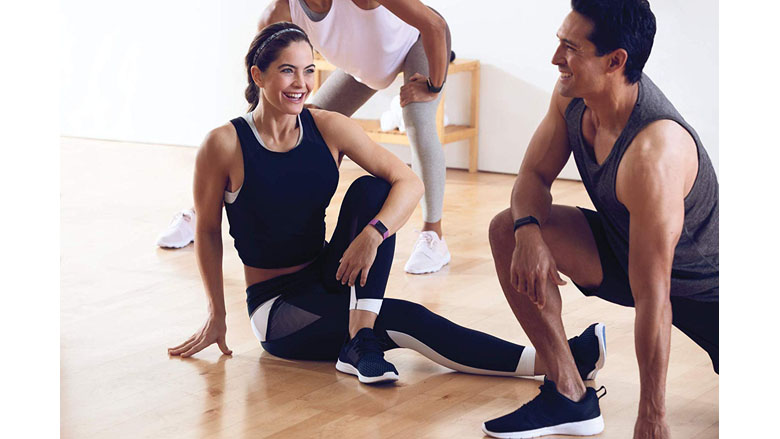
Fitbit
Whether you’re looking for a Fitbit with integrated GPS, stunning OLED displays and smart notifications, or a more basic model, we’ve got you covered. If you find yourself asking, “Which Fitbit is right for me?” take a look at our comparison below to understand which model is best for your unique needs.

|
Amazon Customer Reviews
|
Price: $109.99 Shop at Amazon | Shop now Read our review |
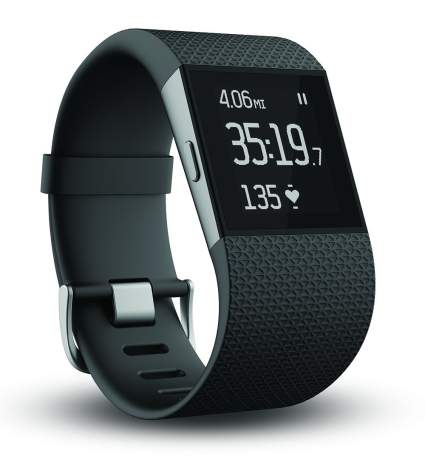
|
Amazon Customer Reviews
|
Price: $79.95 Shop at Amazon | Shop now Read our review |
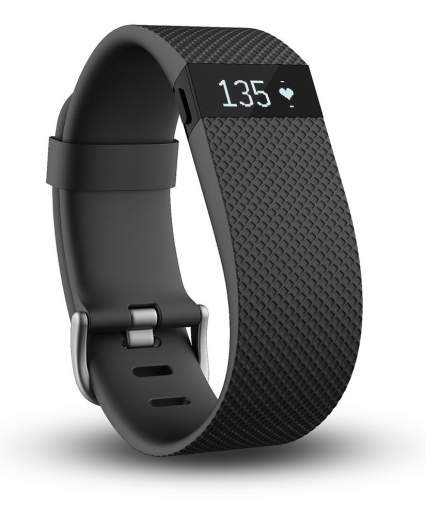
|
Amazon Customer Reviews
|
Price: $145.00 Shop at Amazon | Shop now Read our review |
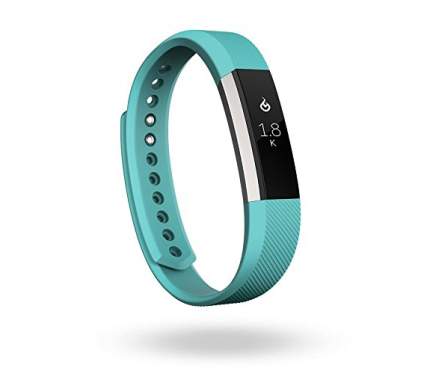
|
Amazon Customer Reviews
|
Price: $199.00 Shop at Amazon | Shop now Read our review |
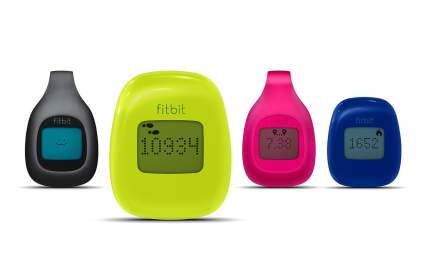
|
Amazon Customer Reviews
|
Price: $124.99 Shop at Amazon | Shop now Read our review |
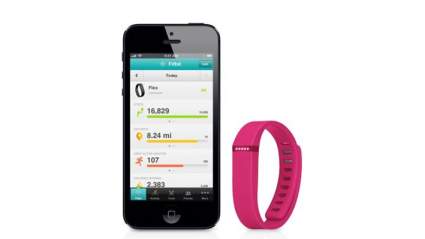
|
Amazon Customer Reviews
|
Price: $112.10 Shop at Amazon | Shop now Read our review |
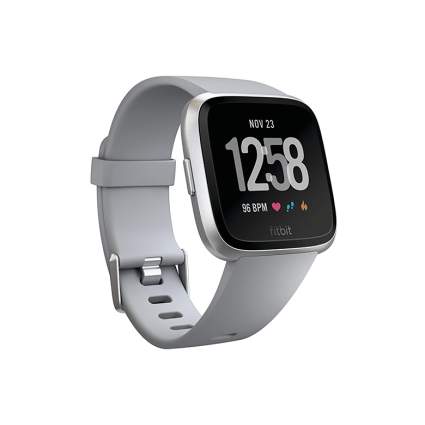
|
Amazon Customer Reviews
|
Price: $140.73 Shop at Amazon | Shop now Read our review |
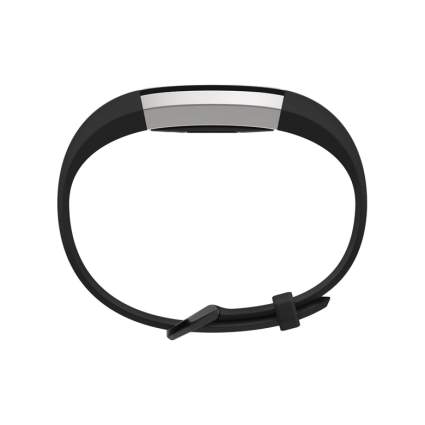
|
|
Price: No price available Shop now at amzn.to | Shop now Read our review |

|
Amazon Customer Reviews
|
Price: $113.51 Shop at Amazon | Shop now Read our review |
-
1. Fitbit Charge 3
Pros:- Battery lasts up to seven days
- Over 15 built-in exercise modes
- Personalized health profile
Cons:- Needs a phone for GPS
- Doesn't provide on-screen workouts
- Can't store music
The Fitbit Charge 3 was named 2018 Fitness Tracker of the Year by Wareable. Improvements over similar Fitbit models include a swimproof construction, sleep tracking with stages and a battery that lasts up to seven days per charge. The Fitbit Charge 3 gets to know your body, so it can provide more personalized insight on your heart as well as display real-time heart rate zones so you can rock every workout.
The similarly priced Alta HR is probably the closest Fitbit tracker to the Charge 3. You’ll find many of the same features on both watches, including tracked steps and activities, calories burned, sleep tracking, automatic exercise recognition, reminders to move and more. However, the Charge 3 also tracks floors climbed and provides guided breathing sessions for relaxation. There’s also swim tracking and the ability to recognize over 15 exercise modes.
-
2. Fitbit Surge
Pros:- Continuous wrist-based heart rate monitoring
- Wireless syncing
- Automatic sleep tracking
Cons:- Heart rate readings can occasionally get dropped
- A bit bulky
- Some complain of a rash from the wrist band
Some fitness trackers have GPS built right in. GPS is a nice feature for people who are trying to keep a regular fitness routine, as well as those who are training for an event. GPS-enabled fitness trackers are ideal for both cyclists and distance runners. Because GPS can pinpoint your location, you can expect accurate fitness data. However, since GPS relies on satellite signals, it may not work perfectly indoors, during storms, or in areas where trees or buildings cause signal interference.
The Fitbit Surge (pictured above) has GPS built right in, as does the Fitbit Ionic smartwatch. Let’s break down these two watches.
First, the Surge. In addition to GPS, the Surge also monitors your heart rate, tells the time, and gives you call and text notifications. Unlike some other fitness trackers out there, the Surge doesn’t need to be told when you are going to sleep, since it has automatic sleep detection functionality. You can also control your workout playlist from your Surge. Another option to consider is the Polar M400 GPS sports watch. The Polar watch retails for the same amount as the Surge, but you can usually find it online for noticeably less than the MSRP.TheFitbit Ionic smartwatch is a nice option for those who don’t like the Apple Watch.
The Fitbit Ionic supports real-time coaching, music storage and playback for about 300 songs, built-in GPS and heart rate monitoring, plus run/swim/bike tracking for up to 4 days without recharging. There is also a built-in NFC chip so you can make payments on the go without a wallet, which is great if you like to run without a bulky, traditional wallet. You may want to consider pairing your Fitbit Ionic with Fitbit’s Flyer wireless headphones, also coming out later this fall. These are the first headphones from Fitbit.
-
3. Fitbit Charge
Pros:- Automatic sleep tracking
- All-day heart rate monitoring
- Wrist-based heart rate monitoring
Cons:- Bands aren't interchangeable
- Battery life could be better
- Charging connector can easily get dirty
A couple of Fitbit trackers have heart rate monitoring, including the afore-mentioned Surge. There’s also the Charge HR. The Fitbit Charge HR is one step above the Fitbit Charge, which lacks the heart rate monitoring you’ll find in the Charge HR. The lack of continuous heart rate monitoring on the Charge does have an upside, however: a lower price tag. We’ll talk a bit more about the Charge later on.
The Charge HR was named “best overall choice for the money” in a Tom’s Guide article about the best fitness trackers of 2015. While it lacks the GPS, music controls, and notifications you’ll find on the higher-end Surge, the Charge HR still has some great features. Real-time heart rate monitoring gives you a more accurate estimate of your calorie burn, and it also helps you to keep your heart rate in the right zone while working out. The Charge HR also has caller ID, which is a nice feature when you get calls during a run or visit to the gym.
-
4. Fitbit Alta
Pros:- Call and text notifications
- Automatic exercise recognition
- All-day activity tracking
Cons:- Screen scratches easily
- Questionable long-term band durability
- Original band can be tricky to clasp
Looking for a fitness tracker that has lots of customization options? Fitbit is positioning the Alta as the Fitbit of choice for those that love, well, choice.
Like many other Fitbits out there, this model has multiple interchangeable bands. These are sold separately, and are made from premium materials like leather or metal. In addition, the Alta offers a slim OLED display with a variety of clock face options to choose from.
You can also choose whether you prefer a vertical or horizontal display orientation. Basic fitness tracking features are included, along with notifications when you get a call, text, or calendar update (but only when your smartphone is nearby). If you’re looking for a slim Fitbit with a blend of fitness tracker and smartwatch features, this is a solid option to consider. Fitbit also offers the Alta HR, which is the Alta with heart rate tracking abilities added to the base Alta model.
-
5. Fitbit Zip
Pros:- iOS and Android compatible
- Tap display
- Water resistant
Cons:- Battery isn't rechargeable
- Clip breaks fairly easily
- Complaints of connectivity issues aren't uncommon
We’ve seen the argument that trackers you wear on your body may be more accurate than those worn on the wrist. Some feel that body-worn trackers are better are tracking your whole body’s physical activity, and not just when your wrist or arm is moving.
Fitbit offers two trackers that you can keep in a pocket, or clip to your clothes. The Fitbit Zip and One also have the benefit of being less expensive than most trackers worn on the wrist.
The major difference between the Zip and the One is simple: the One offers sleep tracking. The One also offers tracking for floor climbing and silent alarms, which the Zip does not. The Zip, however, comes in a lot more fun colors.
Another key difference is the battery. The One has a rechargeable built-in battery. The Zip is powered by a 3V coin battery, which means you don’t have to recharge the device. The battery will last up to six months before it needs to be replaced. If you don’t like the look of an on-the-wrist tracker, one of these two options might be ideal for you.
-
6. Fitbit Flex
Pros:- Smart notifications
- Silent wake alarm
- Slim design
Cons:- Rubber band may irritate skin
- No inactivity alert
- Doesn't have a heart rate monitor
When most people start looking for a Fitbit, they’re thinking of a simple Fitbit tracker that can be worn on the wrist. The base level band tracker is the Fitbit Flex wristband. The Flex does not offer some of the more premium features, such as heart rate tracking or GPS. It also does not have a numerical display for the time or other fitness info. However, the Flex does offer sleep tracking and a silent waking alarm (though no automatic sleep detection).
The Fitbit Charge is more expensive than the Flex, but it does have the added advantage of a display that tells you the time. Other advantages that the Charge has over the Flex are as follows: a clock, auto sleep detection, caller ID, and tracking for floors climbed in a day.
If you don’t mind paying a bit more for certain features, the Flex 2 stands out for its swimproof features and small form factor (including an ultra-thin tracker that can be removed in placed in jewelry). The Charge 2 outdoes the original Charge by offering heart rate monitoring, guided breathing exercises, and a couple of fun new colors.
-
7. Fitbit Versa
Pros:- Sleep tracking with stages
- Over 15 different activities
- Can be worn for swimming workouts
Cons:- Lacks a built-in GPS
- Can't be customized with designer accessories
- Not the slimmest design
The Versa is one of two Fitbit smartwatches. The other model is the Ionic. While it has a lower price tag than its sibling, the Versa shares many of the same features. As with all other Fitbit watches and monitors, this one tracks steps and activity, along with calories burned, throughout the day. Other features include floors climbed, sleep tracking with stages, a silent alarm and guided breathing sessions. Automatic exercise recognition allows you to start your favorite workouts without worrying about remembering to record them. There are over 15 exercise modes, including swim tracking. On-screen workouts workout provide personalized guidance.
Both the Versa and Ionic store music and can be used to make payments. You can customize each watch with your favorite Fitbit accessories. Notifications let you know when you’ve received a call or text. You can send out quick replies with both watches. However, the Ionic has built-in GPS, while the Versa needs to be paired with a phone GPS. Another key difference is that you can use designer accessories with the Ionic, not the Versa.
-
8. Fitbit Alta HR
Price: No price availablePros:- Tracks sleep stages
- Monitors cardio fitness levels
- Customizable clock face
Cons:- No built-in or connected GPS
- Not waterproof
- Some complain of inconsistent heart rate monitoring
Despite the similar names, there are some key differences between the Fitbit Alta HR and the Fitbit Alta. As you might have guessed from the name, the Alta HR comes with continuous wrist-based heart rate tracking. If you’re training for an event or simply want to keep close tabs on your heart rate during workouts, you may consider splurging for the Alta HR. The Alta HR also tracks sleep stages and provides personalized feedback regarding your cardio fitness level. Neither of these Fitbit watches is GPS-enabled, and they can’t be worn when swimming.
-
9. Fitbit Ace
Pros:- Parents can enable movement reminders
- Adjustable band
- Clock face can be switched
Cons:- Not waterproof
- Only comes in one size
- Controls can be cumbersome
The Fibit Ace is the first activity tracker for kids from Fitbit. Like other Fitbits, this one also tracks steps, sleep and active minutes throughout the day. There are plenty of kid-friendly features, including rewards for hitting goals along with encouraging messages and achievement bands. Kids with a competitive streak can challenge others and send messages of encouragement. The tracker isn’t fully waterproof, but it can withstand showers. The adjustable wrist band accommodates a range of wrist sizes. The Ace works with iOS and Android devices and syncs data wirelessly for speedy access to results. The battery should last around five days depending on use.
Fitbit has a large, diverse range of fitness trackers. Variety is great, but all of those options can actually make it difficult to figure out which Fitbit is right for your unique needs. There are Fitbits that you wear on your wrist, as well as options you can clip to your clothes. There are some Fitbit models that track your heart rate, while others are a bit less feature-rich (but the lack of bells and whistles means a cheaper purchase price).
There are a few features that are only available on select Fitbit models. However, there are many features that are available on every single Fitbit, no matter the price point. Every Fitbit model on the market today has the following features: tracking for active minutes during the day, tracking for steps, tracking for calories, and tracking for distance. Most, but not all, will track your sleep. Many of the Fitbit devices will track floors climbed or offer you a silent alarm to wake you without waking your partner. Many Fitbit trackers have a display for the time.
If you're confused by the huge lineup of Fitbit fitness trackers, we're here to help. Here's a guide that breaks down the entire Fitbit line, with the aim of helping you figure out what you want in a fitness tracker, and understanding which Fitbit (if any) will meet your needs.
See Also: